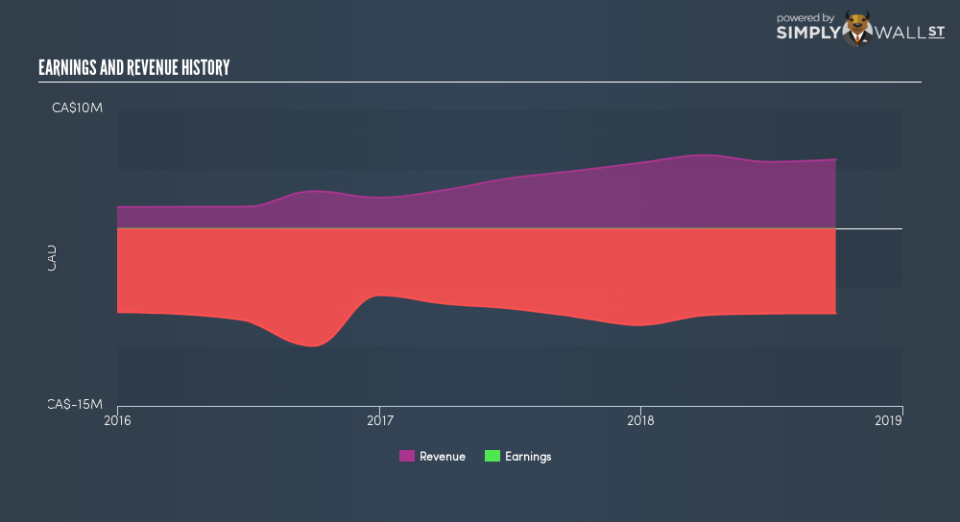What Kind Of Shareholder Owns Most QYOU Media Inc. (CVE:QYOU) Stock?

If you want to know who really controls QYOU Media Inc. (CVE:QYOU), then you’ll have to look at the makeup of its share registry. Large companies usually have institutions as shareholders, and we usually see insiders owning shares in smaller companies. I generally like to see some degree of insider ownership, even if only a little. As Nassim Nicholas Taleb said, ‘Don’t tell me what you think, tell me what you have in your portfolio.’
QYOU Media is a smaller company with a market capitalization of CA$8.4m, so it may still be flying under the radar of many institutional investors. Our analysis of the ownership of the company, below, shows that institutions are not on the share registry. Let’s take a closer look to see what the different types of shareholder can tell us about QYOU.
Check out our latest analysis for QYOU Media
Want to help shape the future of investing tools? Participate in a short research study and receive a subscription valued at $60.
What Does The Lack Of Institutional Ownership Tell Us About QYOU Media?
Small companies that are not very actively traded often lack institutional investors, but it’s less common to see large companies without them.
There are multiple explanations for why institutions don’t own a stock. The most common is that the company is too small relative to fund under management, so the institition does not bother to look closely at the company. Alternatively, there might be something about the company that has kept institutional investors away. QYOU Media might not have the sort of past performance institutions are looking for, or perhaps they simply have not studied the business closely.
We note that hedge funds don’t have a meaningful investment in QYOU Media. There is a little analyst coverage of the stock, but not much. So there is room for it to gain more coverage.
Insider Ownership Of QYOU Media
While the precise definition of an insider can be subjective, almost everyone considers board members to be insiders. Management ultimately answers to the board. However, it is not uncommon for managers to be executive board members, especially if they are a founder or the CEO.
Insider ownership is positive when it signals leadership are thinking like the true owners of the company. However, high insider ownership can also give immense power to a small group within the company. This can be negative in some circumstances.
It seems insiders own a significant proportion of QYOU Media Inc.. It has a market capitalization of just CA$8.4m, and insiders have CA$1.1m worth of shares in their own names. This may suggest that the founders still own a lot of shares. You can click here to see if they have been buying or selling.
General Public Ownership
The general public, who are mostly retail investors, collectively hold 87% of QYOU Media shares. This size of ownership gives retail investors collective power. They can and probably do influence decisions on executive compensation, dividend policies and proposed business acquisitions.
Next Steps:
While it is well worth considering the different groups that own a company, there are other factors that are even more important.
I always like to check for a history of revenue growth. You can too, by accessing this free chart of historic revenue and earnings in this detailed graph.
But ultimately it is the future, not the past, that will determine how well the owners of this business will do. Therefore we think it advisable to take a look at this free report showing whether analysts are predicting a brighter future.
NB: Figures in this article are calculated using data from the last twelve months, which refer to the 12-month period ending on the last date of the month the financial statement is dated. This may not be consistent with full year annual report figures.
To help readers see past the short term volatility of the financial market, we aim to bring you a long-term focused research analysis purely driven by fundamental data. Note that our analysis does not factor in the latest price-sensitive company announcements.
The author is an independent contributor and at the time of publication had no position in the stocks mentioned. For errors that warrant correction please contact the editor at editorial-team@simplywallst.com.

 Yahoo Finance
Yahoo Finance 

